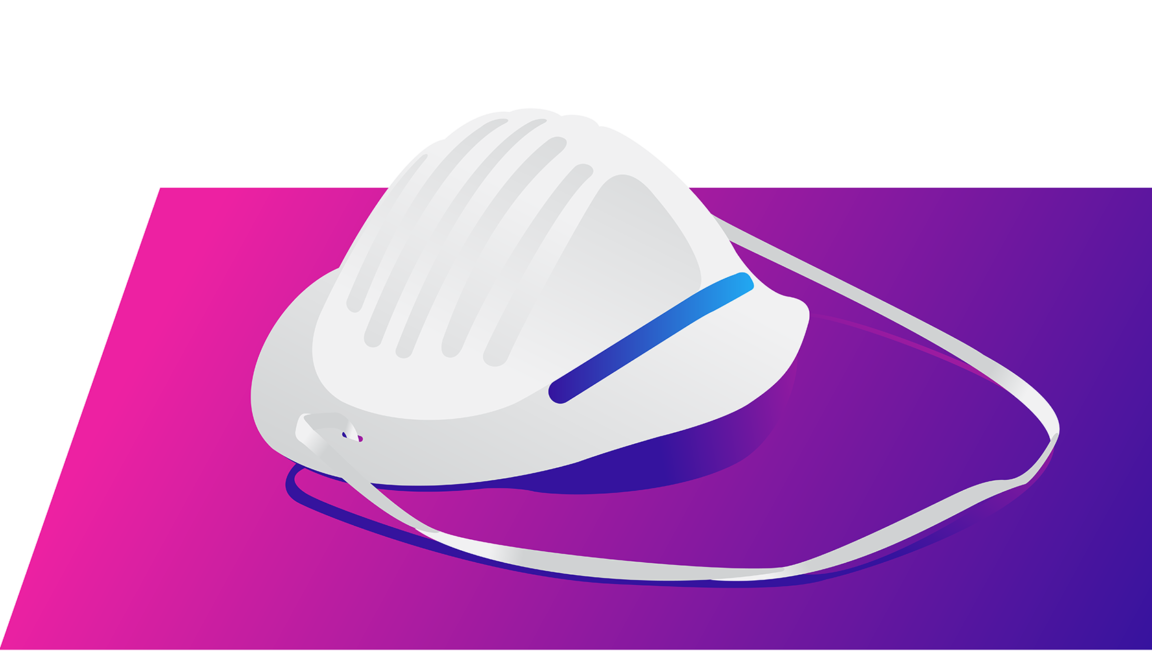On May 5, Governor Andrew Cuomo signed the New York Health and Essential Rights (HERO) Act into law requiring employers to adopt certain health and safety measures to curb the workplace spread of COVID-19 and other airborne infectious diseases. On June 11, the governor signed amendments to the HERO Act into law clarifying employer obligations and applicable deadlines.
Download this FYI as a printable PDF
Background
On May 5, New York enacted the New York Health and Essential Rights (HERO) Act imposing new health and safety obligations on private employers to prevent the workplace spread of COVID-19 and other airborne infectious diseases. It required employers to implement certain safety protocols and standards, effective June 4, and to permit the creation of joint employer-employee workplace safety committees, effective November 1.
According to Governor Cuomo’s approval memo, the state legislature agreed that it would make certain technical changes to the bill. They included giving the New York State Department of Labor (NYSDOL) and employers more specific instructions and a clearer timeline to develop and implement required workplace standards. (See our May 18, 2021 FYI.)
HERO Act amendments
On June 11, the governor signed the following technical changes into law (S6768/A7477) modifying and clarifying several aspects of the HERO Act, including employer obligations and applicable deadlines.
Applicable deadlines
The HERO Act required the NYSDOL, in consultation with the state Department of Health, to create and publish by June 4 (in both English and Spanish) a model airborne infectious disease safety standard establishing minimum requirements for preventing workplace exposure to airborne infectious diseases. The amended statute gives the NYSDOL an additional 30 days — or until July 5 — to publish industry-specific model disease prevention protocols.
The HERO Act required covered employers to establish an airborne infectious disease exposure prevention plan — either by adopting the NYSDOL model standard for their industry or implementing an alternative plan that meets or exceeds state standards. Under the amended statute, employers must adopt the model standard relevant to their industry within 30 days of its publication or create their own prevention plan within that timeframe.
Employers will be required to provide the plan to employees within 30 days of its adoption and to new employees upon hire. Businesses that are closed due to airborne infectious disease will be required to provide the plan to all employees within 15 days after reopening. Employers that are permitted to operate as of July 5 will have to provide their prevention plan to all employees no later than 60 days after the NYSDOL publishes the model general standard and applicable industry standard.
Workplace safety committees
Under the HERO Act, covered employers were required to allow employees to establish and administer a joint labor-management workplace safety committee co-chaired by employee and employer representatives by November 1. The amendments provide that an employer is exempt from creating an additional safety committee if it already has a workplace safety committee “that is otherwise consistent with the requirements” of the Act. In addition, it need not permit more than one committee per worksite.
Among other things, the Act required workplace safety committees and workplace safety designees to be permitted to review employer reports and workplace policies, participate in site visits by governmental entities responsible for enforcing safety and health standards, hold quarterly committee meetings during work hours, and attend health and safety training without loss of pay.
The amendments clarify that the review of employer policies by safety committees and safety designees is limited to those required by the Act relating to occupational safety and health. In addition, they allow employers to limit quarterly committee meetings during work hours to two hours and paid health and safety training to four hours.
Updated definitions
The amendments update the definition of a covered employee to include “individuals working for digital applications or platforms.” In addition, they update the definition of “work site” to mean “any physical space, including a vehicle, that has been designated as the location where work is performed over which an employer has the ability to exercise control.” For these purposes, the term does not include a telecommuting or telework site unless the employer has the ability to exercise control of it.
Noncompliance
The amendments delay the effective date of the Act from June 4 to July 5, with the exception of the workplace safety committee provisions that will still take effect on November 1. Thus, businesses may be liable for discrimination or retaliation under the Act starting next month.
The Act permits employees to bring a civil action for employer noncompliance. Under the amendments, an employee generally must give the employer 30 days notice of an alleged violation and may not bring a civil action if the employer remedies it. Further, any civil action under the Act must be brought within six months of the date the employee knows of the alleged violation.
In addition, the amendments eliminate a prior provision that provided for liquidated damages unless the employer proved it believed in good faith that its health and safety measures were in compliance. They now allow courts to award attorneys’ fees and costs to employers for frivolous actions brought by employees.
In closing
New York employers should review any existing COVID-19 policies, safety protocols and prevention plans and prepare to make changes as needed once the state issues a model standard.
COVID-19 Compliance check-in
Buck’s latest version of the COVID-19 Compliance check-in is updated to reflect the retirement, health, labor and employment issues facing employers now. Review the checklist to help your team manage priorities and determine next steps.
Volume 44 | Issue 21
